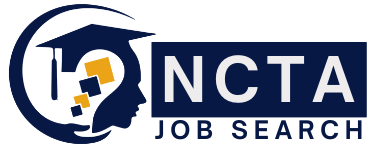Higher education is changing. Degrees are no longer the only path to success, as online job-oriented courses gain popularity. While higher education still holds value, the job market is shifting toward skills-based hiring. Labor shortages and rapid tech advancements have reduced the focus on degrees, with companies like Google and Apple no longer requiring them for many roles. A 2022 report found that employers dropped degree requirements for nearly half of middle-skill and a third of high-skill jobs between 2017 and 2019. Online job-oriented courses now provide a flexible, affordable way to gain skills and certifications, offering a strong alternative to traditional education. Let’s explore what this means for your career.
From the start of the epidemic, the “new normal” has been a common phrase, especially in the field of learning. The growth in online learning has seen educational institutions all around using digital tools to continue teaching. With online learning becoming a main instrument for both academic and extracurricular uses, this movement has transformed education.

Like all teaching methods, online learning has its pros and cons. Understanding these helps institutions develop better strategies for effective lesson delivery and uninterrupted student learning.
What Are The Pros Of Online Learning?
1. Flexible and Personalized Learning
Online learning enables students to study at their own pace, anywhere, without geographical limitations. Pre-recorded lectures and varied learning materials accommodate different schedules and tastes, providing a personalized learning experience.
2. Cost-Effectiveness
Online learning is very cost-effective as it eliminates costs for transportation, food, and physical study materials. The paperless nature also saves the environment while reducing the cost of education.
3. Better Time Management
Scheduling allows students to properly allocate their time between classes, employment, and personal responsibilities. Access to educational resources at any time guarantees a well-rounded approach to learning.
4. Personalized Learning Paths
Students can learn about particular topics or skills at their own pace with customized online courses that are tailored to meet their unique learning needs. This personalized process improves learning and retention.
5. Suits a Variety of Learning Styles
Online education supports a variety of learning modes, including interactive, visual, and aural. Learning is made more enjoyable and effective by allowing the learner to choose from variety of digital resources, such as podcasts, PDFs, and videos.
What Are The Cons Of Online Learning?
1. Sense of Isolation
Online education reduces direct touch with professors and other students, resulting in feelings of loneliness. The lack of in-person interaction may make it difficult for learners to seek assistance and form relationships.
2. Technical Issues and Internet Dependency
A constant internet connection and sound devices are critical for learning online. Accessibility becomes a challenge for students living in rural or disadvantaged areas, and technical failures may interfere with learning.
3. Failure To Concentrate On Screens
For most students, possibly the most difficult part of online learning is the challenge of concentrating on the screen for long hours. Online learning is also where there are more opportunities for students to get distracted easily by social media or other websites. It is thus important for the instructors to make their online classes clear, interesting, and interactive so that the students maintain concentration on the lesson.
4. Limited Practical Exposure
Subjects that require hands-on learning, such as technical skills, medical practice, or laboratory investigations, may not be as successful in an online environment. The learning of skills may be impacted by the lack of physical practice.
5. Lack of Direction Can Be Overwhelming
Without the right support, students may feel overwhelmed by the abundance of information and self-study. When it comes to complex subjects, some students may become confused by the absence of direct supervision.
How to Choose the Right Job-Oriented Course for Your Career Path

Selecting the best job-oriented course is the most important step in building your career. With so many options, it is important to make a well-informed choice based on your interests, career objectives, and demand in the market. Here are the most important factors to consider:
- Identify Your Strengths and Interests: Evaluate your abilities, interests, and long-term career goals. A course aligned with your strengths will increase your likelihood of success and job satisfaction.
- Research Job Demand in the Market: Study industry trends and employment opportunities in your area of interest. Search for courses providing in-demand skills and good employment prospects.
- Check Course Curriculum and Certification: Confirm if the course covers relevant skills and provides industry-standard certifications. Practical training, internships, and project work provide additional value.
- Look into Flexibility and Mode of Learning: Choose between online, offline or hybrid learning depending on your availability and learning style. Online courses are flexible, whereas physical training allows hands-on practice.
- Evaluate Placement Support and Career Growth: Select universities that offer networking, career counseling, and placement support. Your job prospects can be enhanced by having strong industry ties.
Top Job-Oriented Courses to Pursue After Graduation

Below are the top advanced professional courses after graduation that will land you in high-paying jobs.
- Digital Marketing – Learn SEO, SMM, and analytics for marketing careers.
- Business Accounting & Taxation – Master tax systems and accounting skills.
- Business Analytics – Interpret data for decision-making roles.
- Machine Learning – Gain AI and ML expertise for tech jobs.
- Financial Planning – Focus on investment and portfolio management.
- Product Management – Build skills in product analysis and prototyping.
- Full Stack Development – Learn HTML, CSS, and JavaScript for web development.
- Data Science – Analyze large datasets for data scientist roles.
- Blockchain – Explore applications in healthcare, logistics, and governance.
- Biotechnology – Advance in research and high-paying biotech roles.
The Benefits of Combining a Degree with Job-Oriented Courses
Combining a degree with job-related courses gives you a competitive advantage in today’s labor environment. While a degree gives you basic knowledge, professional courses teach you practical, industry-specific skills. This combination improves employability, closes the gap between theory and practice, and opens doors to high-paying opportunities. It also keeps you up to date on changing industry trends, making you a versatile and job-ready candidate.
How Job-Oriented Courses Are Helping in the Growth of the Gig Economy

Job-oriented courses are boosting the gig economy by providing people with specialized, in-demand skills. These courses offer flexible, practical training that is aligned with freelance and contract employment, allowing workers to adapt to a variety of professions. They enable workers to succeed in the gig economy by promoting skill development and entrepreneurship, hence addressing the demand for short-term, project-based jobs.




